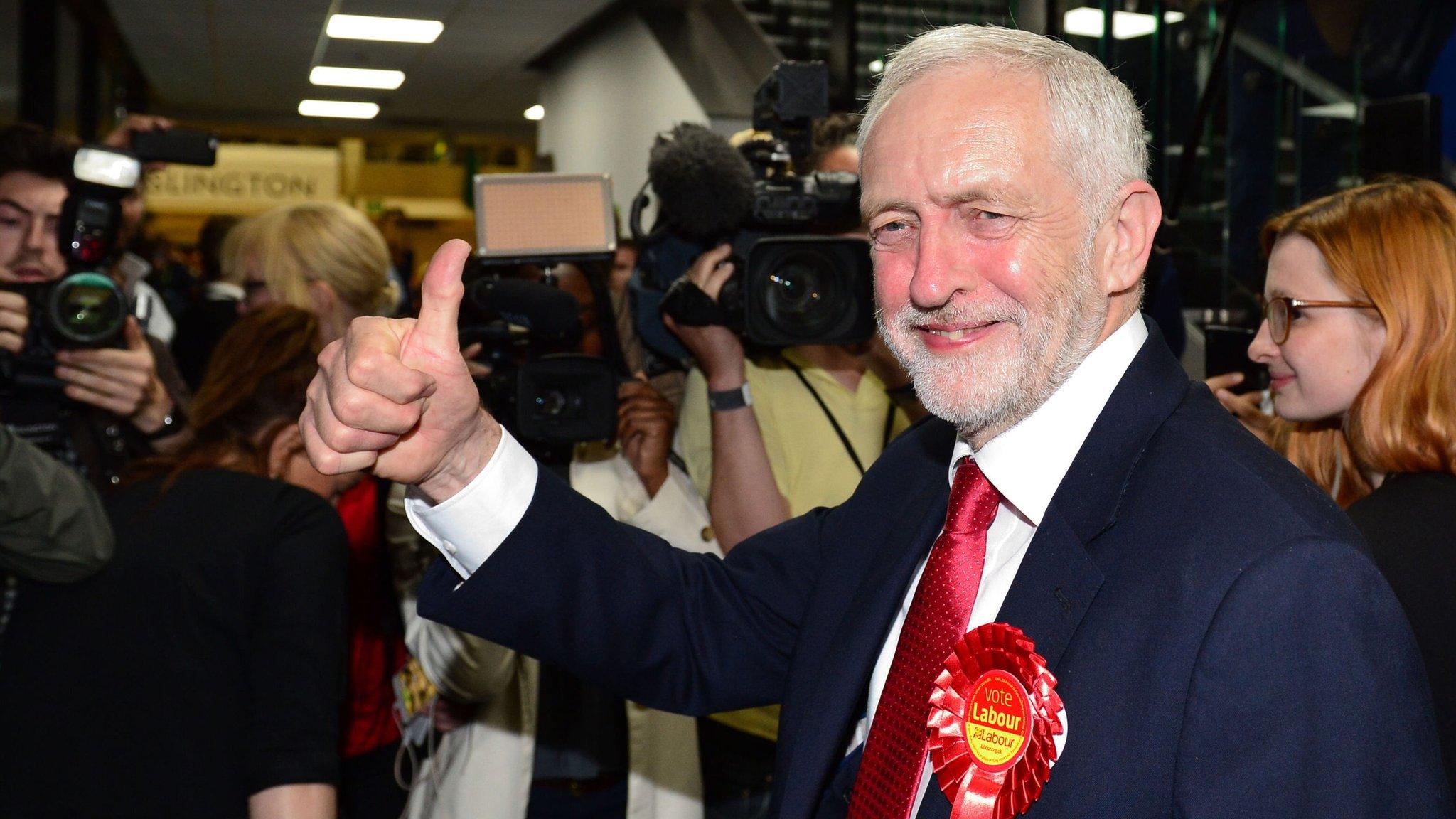UK election 2017: Conservatives lose majority
- Published
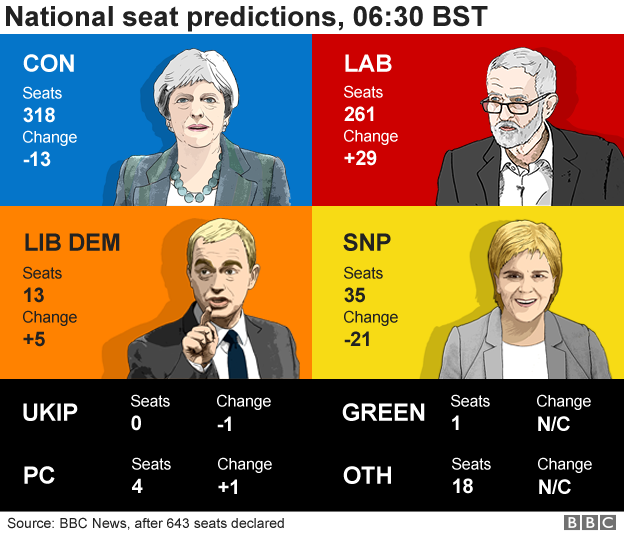
Britain's Conservatives have lost their majority in a snap general election that has resulted in a hung parliament.
With just a handful of seats left to declare, Thursday's poll shows gains for the opposition Labour Party.
This is seen as a humiliation for PM Theresa May, who chose to call the election to try to strengthen her hand in talks with the EU on Brexit.
Labour leader Jeremy Corbyn urged her to resign, but she said her party would "ensure" stability in the UK.
Election results: Live updates
UK election result: How the world reacted
What the election result means for Brexit
However Ms May does not plan to stand down, says BBC political editor Laura Kuenssberg.
Earlier on Friday, the prime minister said: "At this time more than anything else, this country needs a period of stability."
Theresa May says the UK needs a period of stability
Mrs May - who had a small majority in the previous parliament - had called an early election to try to improve her negotiation positions on Brexit.
But EU foreign policy chief Federica Mogherini said the vote had plunged the talks - due to start later this month - into further uncertainty.
"One year after their referendum, we still don't know the British position in the negotiations on Brexit and it seems difficult to predict when we will," she said.
Mr Corbyn earlier said: "If there is a message from tonight's results, it's this: the prime minister called this election because she wanted a mandate. Well, the mandate she's got is lost Conservative seats, lost votes, lost support and lost confidence."
"I would have thought that's enough to go, and make way for a government that will be truly representative of all of the people of this country," he added.
Labour leader Jeremy Corbyn: "I'm very, very proud of the campaign my party has run"
Final election results are expected by Friday lunchtime.
The biggest shock of the night so far has been Liberal Democrat MP Nick Clegg losing his seat to a Labour candidate. He was deputy prime minister of the UK from 2010 to 2015 in a coalition government with the Conservatives.
Former Scottish National Party leader Alex Salmond was also defeated, losing his seat to a Conservative.
A total of 650 Westminster MPs are being elected, with about 45.8 million people entitled to vote. A party needs 326 seats to have an overall majority.

What are the results so far?
The Conservatives are projected to win 42% of the vote, Labour 40%, the Lib Dems 7%, UKIP 2% and the Greens 2%.
In the House of Commons, the Conservatives are predicted to be about 10 seats short of an overall majority. Labour are set to gain about 30, the Lib Dems five and the SNP are predicted to lose 22 seats.
The Green Party would be unchanged with one seat and Plaid Cymru still have three MPs in Wales, according to the poll.
Northern Ireland has different political parties.

What the result means for Brexit - By James Landale, BBC diplomatic correspondent
Britain's exit from the EU has been plunged into uncertainty. Theresa May has not secured the clear mandate that she sought for her version of a hard Brexit.
It will now be difficult for the government - whatever shape that government will be - to start talking to the EU in nine days' time as planned without rethinking its strategy.
If the Tories form a minority government, Theresa May could start negotiations but she might have to water down her plans if she wanted to get any Brexit-related legislation through the House of Commons, where she will need the support of other parties.
Much will depend on the wishes of the Democratic Unionist Party MPs from Northern Ireland who would be her most likely allies. This would be a recipe for survival, not stability.
If Mrs May stands down as prime minister, then any negotiations over Brexit may have to be delayed while the Conservative party chooses a replacement and discusses if or how to change its approach to Brexit.
This would not be straightforward because Tory divisions over Europe would remain and potential leadership contenders would have to decide whether to argue for a soft or hard Brexit.

How have other parties reacted?
SNP leader Nicola Sturgeon said the election "has been a disaster for Theresa May".
"Her position I think is very, very difficult. We have to wait and see how things shake out," Mrs Sturgeon said, adding that she was "disappointed at the SNP losses".
Leader of UK Independence Party Paul Nuttall tweeted: "Theresa May has put Brexit in jeopardy. I said at the start this election was wrong. Hubris."
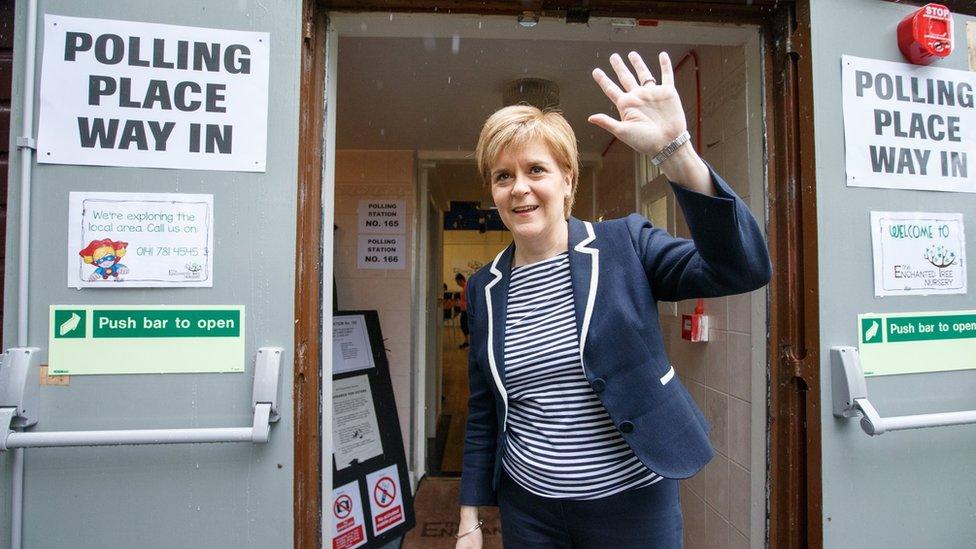
In Glasgow, SNP leader Nicola Sturgeon voted at a local community hall
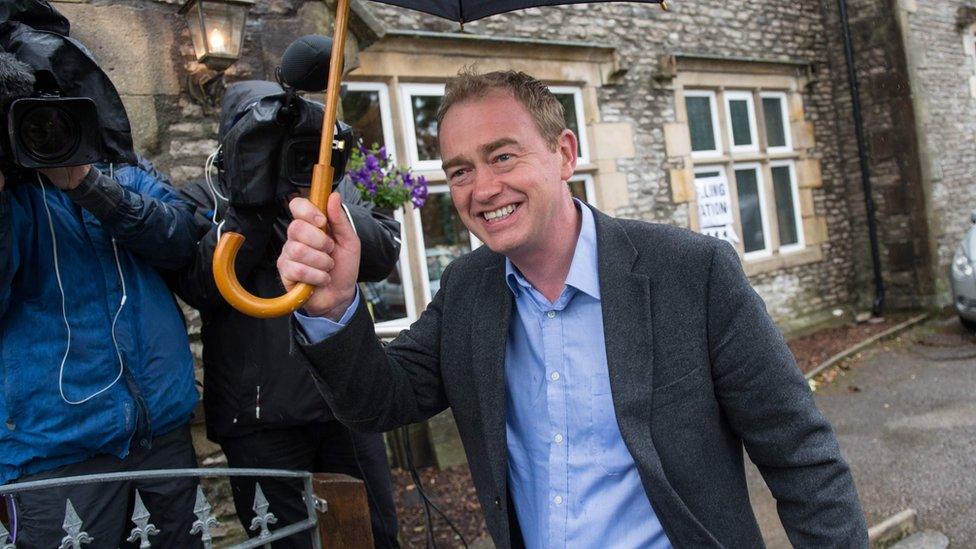
Lib Dem leader Tim Farron looked cheerful despite the rain after voting in Kendal, Cumbria
Lib Dem President Baroness Brinton said her party could not work with either Labour or the Tories as both are pushing for a "hard Brexit".
Green co-leader Caroline Lucas earlier said: "Greens will never support a Tory government."

What about a possible impact on the UK economy?
When the election exit poll was revealed, the pound immediately dropped by 2% as investors took a position that a hung parliament was a possible outcome, writes BBC's Economics Editor Kamal Ahmed.
Election catches investors off guard
Why would that lead the currency to decline? Because a hung parliament means that the government's direction of travel would be less certain.
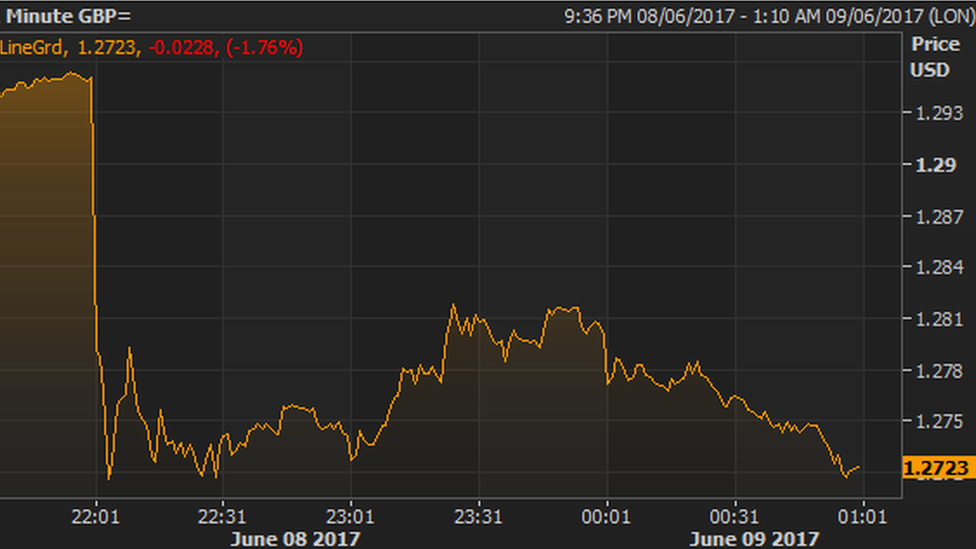
The pound fell sharply against the dollar after the exit polls were released.
Deals would have to be done. And those vital Brexit negotiations could become all the more difficult.
Nervousness in the markets is likely to increase and investors could decide to move their money to more attractive places, such as the eurozone where growth has picked up and political risk has reduced, our editor says.
- Published9 June 2017
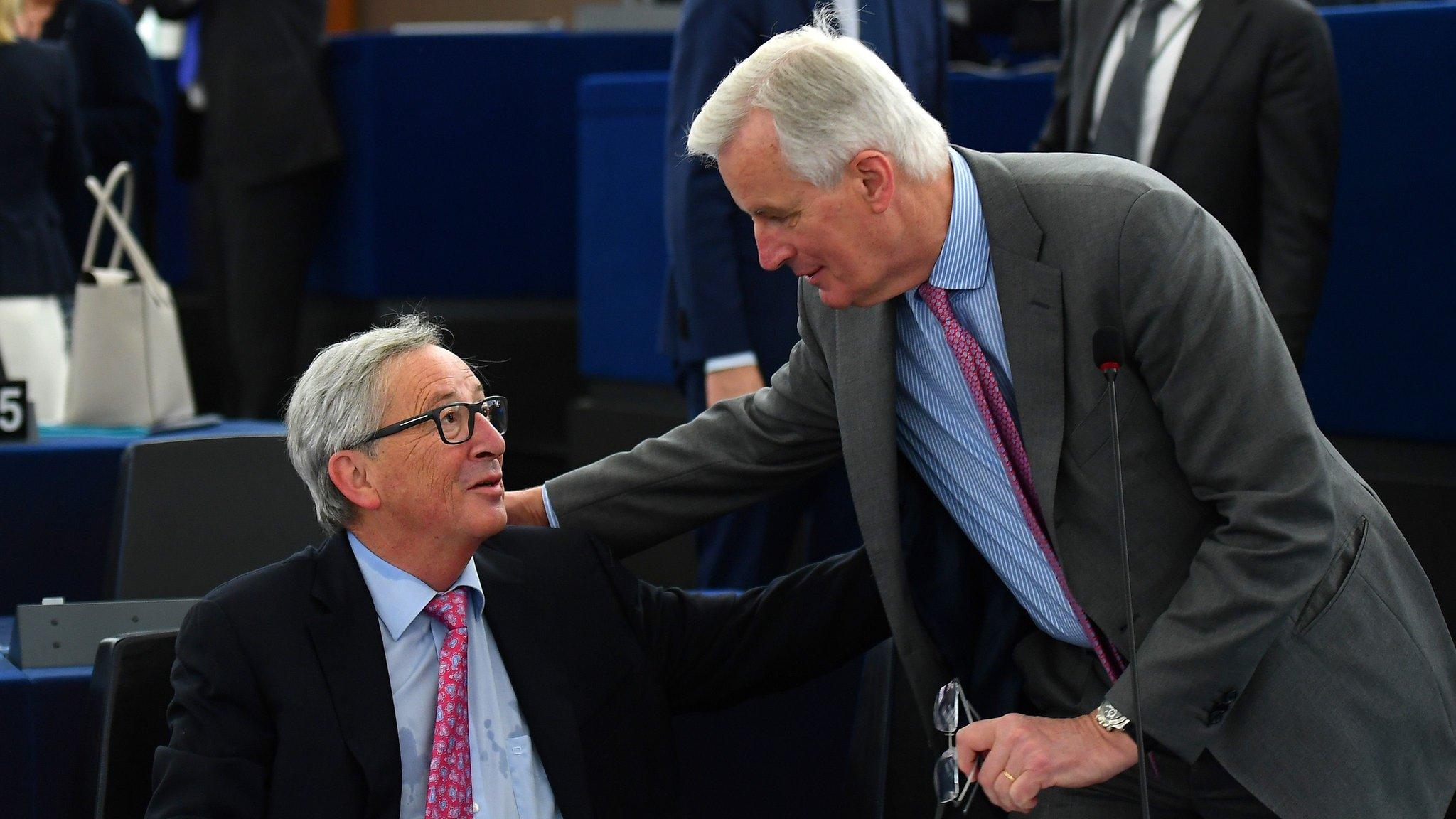
- Published9 June 2017
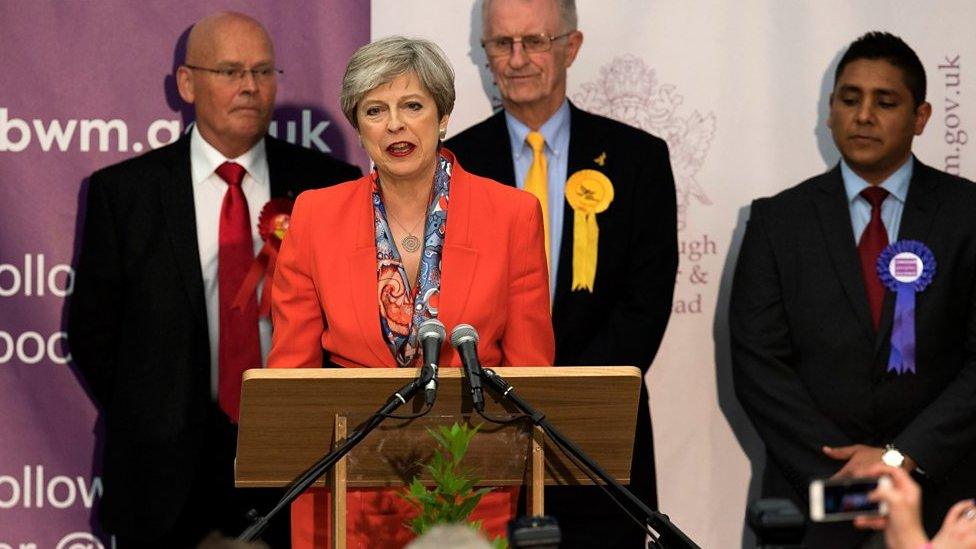
- Published9 June 2017
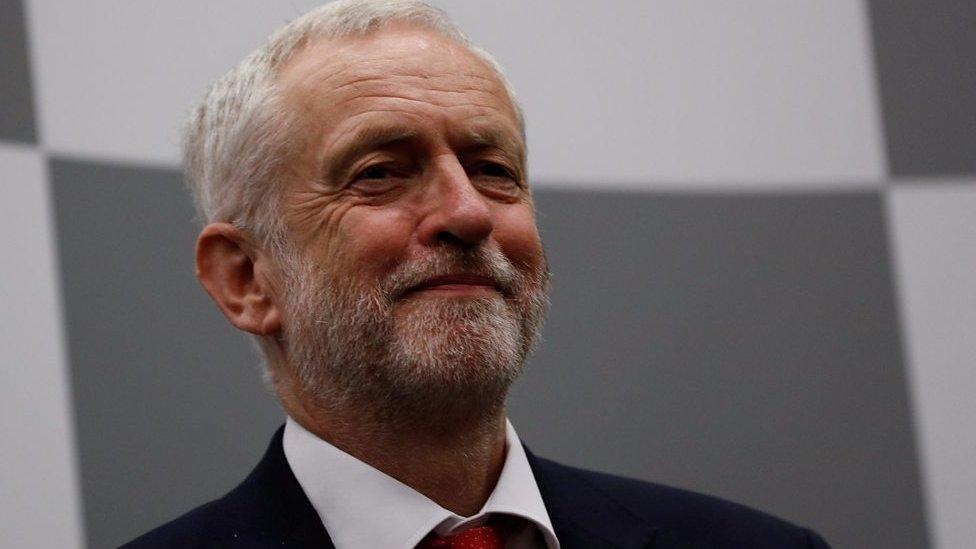
- Published6 June 2017
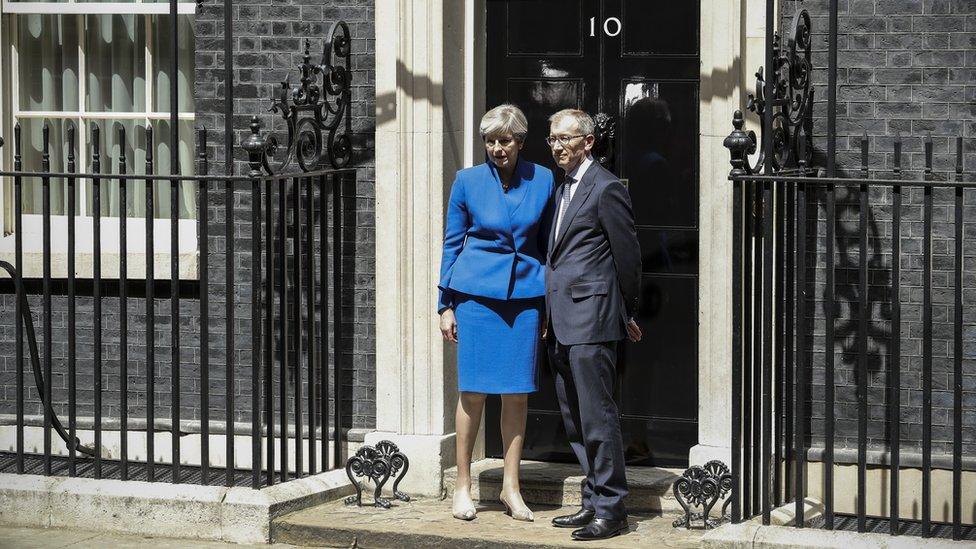
- Published9 June 2017
